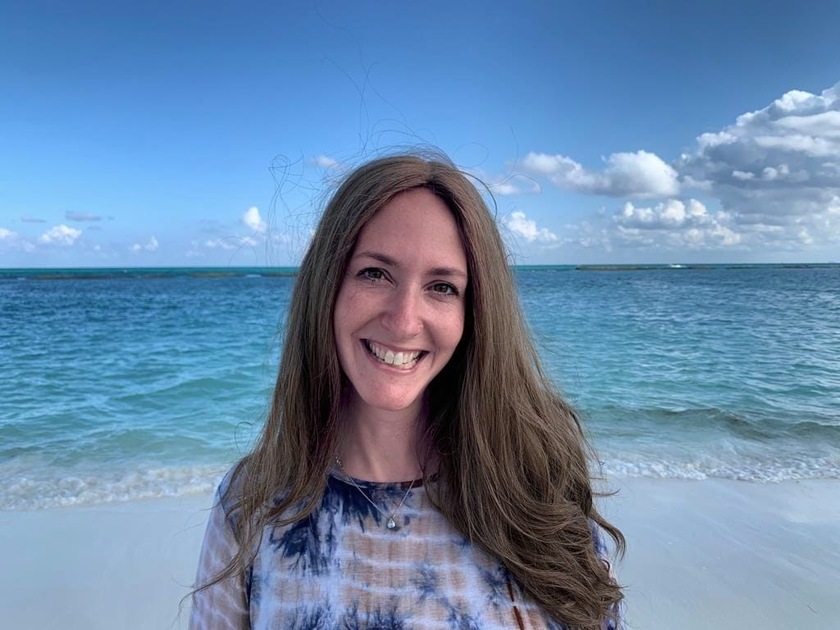
*Due to a misunderstanding about a deadline for a guest post on another site, I ended up with a "spare" mini-article this week, and opted to share it here, instead:
You know that feeling of scary relief?
Like when you very narrowly miss being in what could have been a terrible car accident?
Or almost fall down a flight of stairs, but catch yourself at the last minute?
Or you wake up from a nightmare, and dramatically exhale when you realize it’s not real?
It’s an interesting phenomenon, this particular form of gratitude.
On the one hand- you’re so happy about what didn’t happen.
And also, a little freaked out about what almost did. And/ or what sometimes does.
We appreciate that we’re ok, because there’s a possibility of not being ok.
We know this because, sometimes pain happens to people- the accidents, injuries, and nightmares.
The gratitude of “phew” is tinged with the anxiety of “could have” and “sometimes.”
We often think of emotions in terms of absolutes.
But many of our human feelings show up as hybrids:
Nervous/ excited
Jealous/ inspired
Bereft/ tranquil
Angry/ vindicated
Scared/ exhilarated
Sad/ hopeful
Joyful/ wistful
As an anecdotal example:
Someone who pines to get married, could feel both thrilled for a close friend’s engagement and pained over one more reminder-pang of loneliness.
In this week’s Parsha, Jethro has a visceral, bittersweet, complex, psychological response to some shocking news.
He hears about G-d’s miraculous salvation of the Jews and the downfall of Egypt, and the verse reports, in Hebrew: “Vayechad.”
An unusual word.
Rashi explains that either it means “rejoiced,” as in the word “chedvah” or that his skin became little sharp points -goosebumps- about the loss of Egypt. Rashi cites the Gemara which adds that one should take extra care to be sensitive in front of a convert, even for 10 generations, not to say anything pejorative about gentiles.
Jethro was a truth seeker; Rashi says that he had sampled all the ideologies in the world before arriving at Torah.
While his mind and soul affirmed allegiance to G-d and Judaism, his heart recognized that he could have easily been an Egyptian as well. He didn’t perish in the sea, but others did, and he could have too.
Being a person of expansive mind and empathy will often invite layered emotional experience.
The word “vayechad” is not the typical word for “and he was glad.” There are several other more common and recognizable verbs that could have been used. The double entendre seems to indicate that this was more than pure, simple joy.
The word chad also means “one” or “unified.”
A person who is able to both rejoice for those saved and simultaneously break out in the chills when he identifies with those who perished rather than repent, is a someone who embodies the sanctity of G-d’s Oneness. Perhaps specifically because he had explored other faiths, he could bring back and sanctify the sparks of perspective. He could mourn for what the Egyptians were never able to become. We can’t say the whole Hallel when our salvation has to come at the expense of great national tragedy- necessary and miraculous as it was.
When someone we love gets that clean bill of health we’ve been praying for, we cry from relief but also, maybe from the survivors’ guilt awareness that someone else did not make it.
When we rejoice in our good fortunes- a wedding, a birth, a siyum, a promotion- the emotions are both gratitude for the privilege of this milestone, and also, heightened consciousness of and empathy for those who are still yearning and praying for those very blessings.
We hear of the devastation this week in Syria and Turkey, at once incredibly grateful for our own safety and horrified by the incomprehensible suffering of “others.”
Jethro models being able to hold space for that dialectic, the “yes and.”
The seemingly opposing energies that mutually define and complement one another.
The yin and the yang, the joy and the trembling.
The relief and the grief that are intrinsic to the humanity of caring about others, encompassing G-d’s
Oneness in creation and in our collective soul.
*For more mental health perspectives, you might enjoy: Find Your Horizon of Healthy Thinking
Check out my new course!
A Religious Families Guide to Healthy Holy Sex Education: Sacred Not Secret
Elisheva Liss, LMFT is a psychotherapist in private practice. Her book, Find Your Horizon of Healthy Thinking, is available on Amazon.com. She can be reached for sessions or speaking engagements at speaktosomeone@gmail.com More of her content can be found at ElishevaLiss.com
 Previous
Previous

